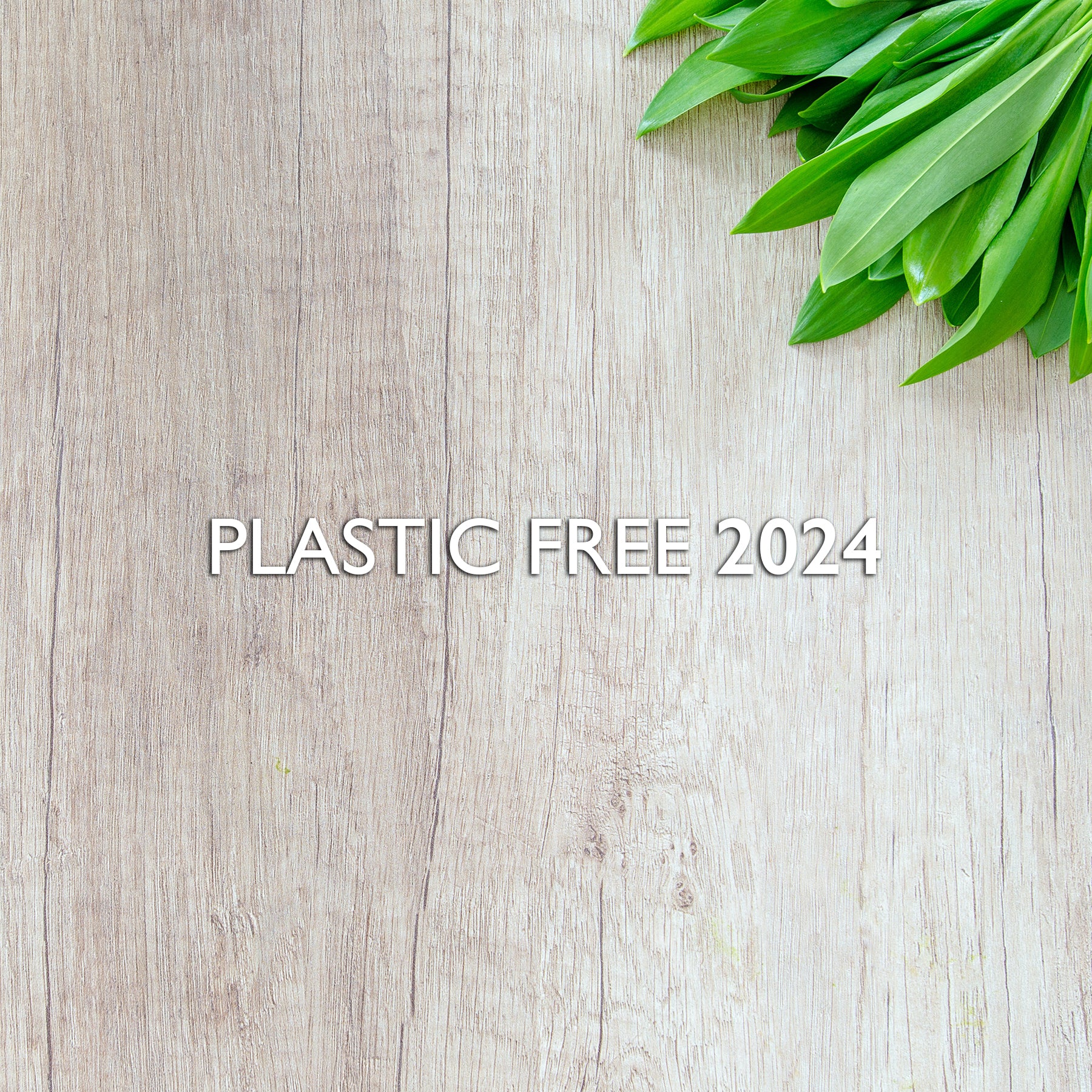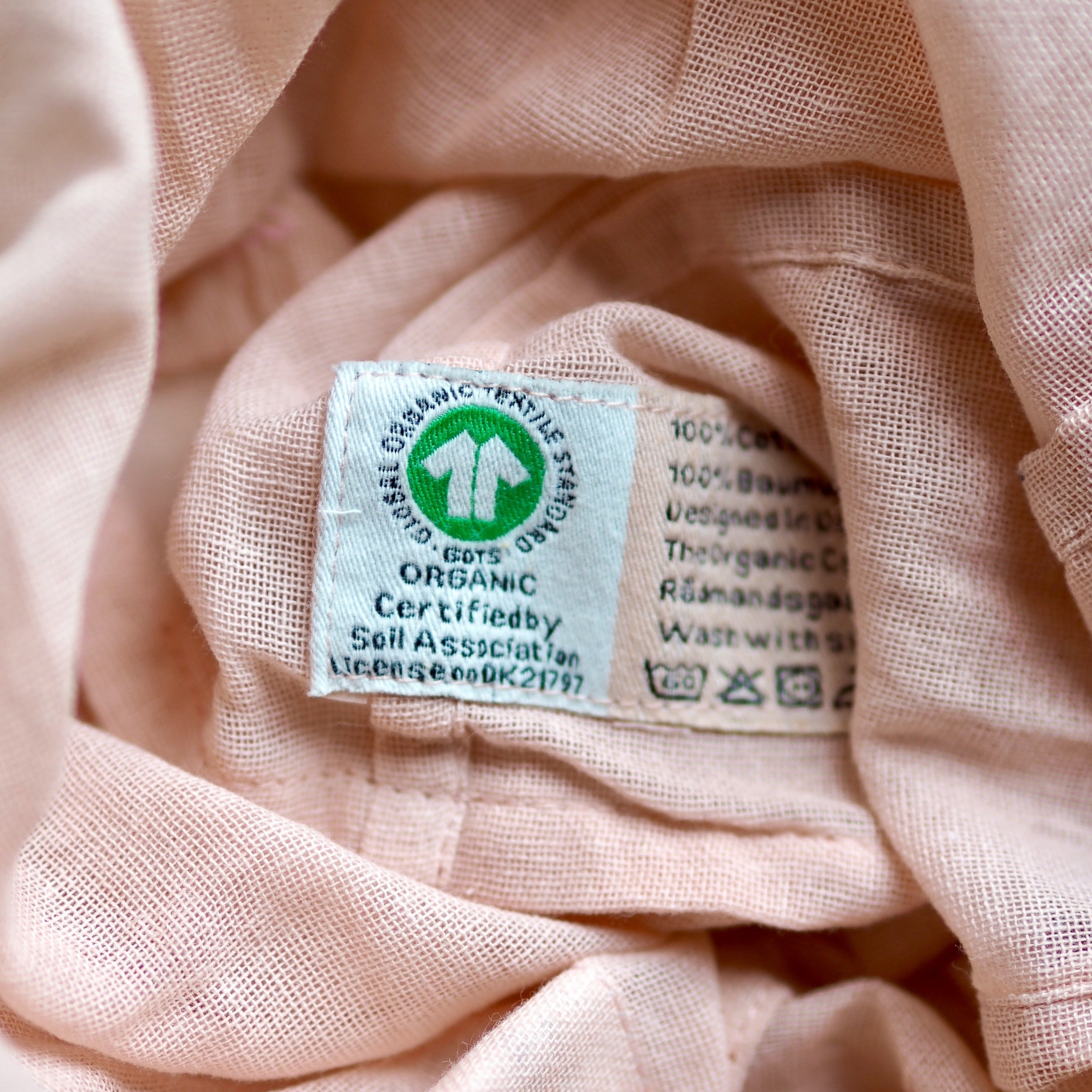2024 Guide: Easy Steps to a Plastic-Free New Year

Practical ways to tackle plastic in your life
As the world continues to face environmental challenges, the need to reduce plastic consumption and adopt an eco-friendly lifestyle has become more urgent than ever. As we step into 2024, it's time to take proactive measures to minimize our plastic footprint. From choosing organic, ethical fashion to ditching bottled beauty products, here are the practical ways to tackle the plastic in your life.
Stock Up on Reusable Essentials
One of the easiest ways to cut down on plastic waste is by swapping disposable items with reusable alternatives. Consider investing in a durable, stylish reusable coffee mug and water bottle. Not only will this significantly reduce the number of single-use cups and bottles you consume, but it also adds a touch of personalisation to your daily routine.

You can expand your reusable arsenal beyond coffee mugs and tote bags to nifty items such as reusable food wraps, bamboo picnic-ware, stainless steel straws and water filters to replace bottled water. It’s even possible to have a plastic-free period with plenty of sustainable menstruation products available on the market today. These small changes can make a big impact over time.
Purge the Plastic: A Home Inventory
Take a critical look around your home and make a list of items that can be replaced with plastic-free options. Swap bottled shampoos and soaps for bars, which often come in eco-friendly cardboard packaging. Eliminate products that may contain harmful microbeads, opting for natural alternatives.

When it's time to change your toothbrush, consider organic materials such as bamboo fibre products. Evaluate the packaging of your food items—can you buy dry foods in bulk and store them in reusable containers? Often, plastic food packaging is not recyclable, so being mindful of your choices can significantly reduce your plastic waste.
Encourage Others: Lead by Example
Sustainability is a collective effort, and it's essential to inspire those around you. While no one likes to be preached to, sharing your journey towards a plastic-free lifestyle can be impactful. Engage in conversations with friends and family about their New Year's resolutions and gently introduce them to the idea of sustainable living.
Lead by example and share your plans to reduce single-use plastics. Encourage others to join you on this eco-conscious journey, making it a shared goal. By fostering a sense of community around sustainable practices, you contribute to a broader positive impact.

Map Out Your Local Sustainable Retailers
Not all retailers are created equal when it comes to environmental consciousness. Take the time to identify and support stores that prioritise sustainability. Look for zero-waste shops, farm stores, and health food outlets, as they typically offer unpackaged, organic fruits and vegetables, bulk grains and cereals with minimal or no plastic packaging. Just don’t forget to take your reusable food containers with you.
By strategically planning your purchases and choosing stores that align with your values, you contribute to a more sustainable market demand, encouraging other retailers to adopt eco-friendly practices.
Children and Plastic: Choosing a Greener Path
Children's toys often contribute to the plastic pollution crisis due to their short life spans. When purchasing gifts for children, consider alternatives made from natural materials like wood or paper-based items. Additionally, when planning parties, opt for biodegradable decor instead of plastic balloons and get creative with sustainable party favours. There are so many great ideas online to cater to all ages and interests. These alternatives are not only eco-friendly but can also be cost-effective.
If you’re raising infants and very young children, explore the option of cloth diapers. Not only do they significantly reduce plastic waste associated with disposable diapers, but they also prove to be a more economical choice in the long run.
Curate a Sustainable Wardrobe
Next time you’re looking to purchase a new item of clothing or update your wardrobe, consider purchasing clothes made from organic materials. Polyester fabric is made from plastic and has a significant negative environmental impact during production, use, and disposal. Every time you wash polyester clothing, tiny plastic fibres are released into the eco system and contaminate waterways, the oceans and even the air. Did you know microplastics have even been found in Antarctica?
Think too about embellishments on your clothing – these are so often plastic in the form of sequins, glitter thread and beading. Opt for ethically made garments created with natural fibres that showcase sustainable, eco-friendly designs.

If you’re overhauling your wardrobe, donate your unwanted clothes to clothing banks and charities, so that they don’t end up in landfill or in the incinerator. There’s more on how to create your own sustainable wardrobe here.
We’d love to know what you think about this month’s blog post. Will you be making sustainable changes to your lifestyle in 2024? You can get in touch with us any time on social media or by email.
Follow us on Facebook and Instagram to stay up to date with the latest in eco-friendly, organic and ethical fashion from Vino Supraja.



